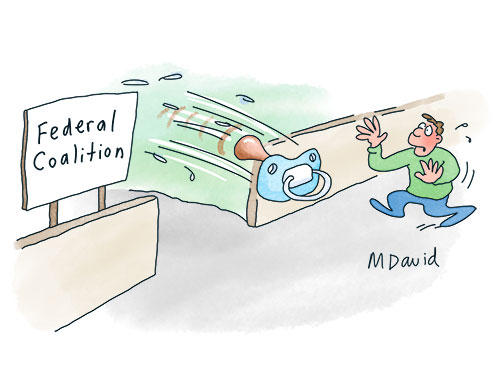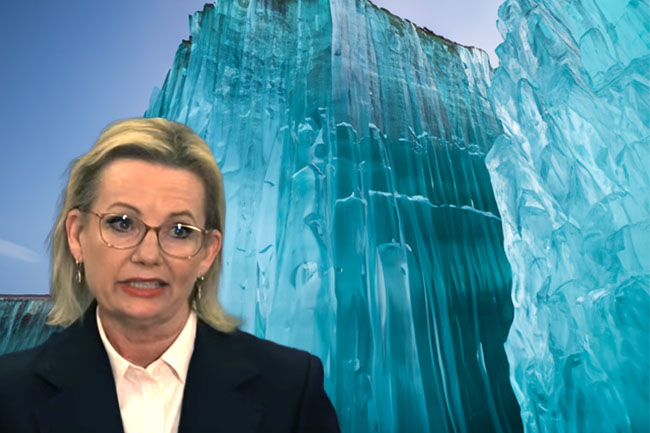“If I can’t keep them safe, I can’t teach them anything.”
~ 2020 Australian of the Year for Queensland Rachel Downie
Bullied or abused people are familiar with a sick feeling that sits deep in the pit of the stomach. Was the abuse warranted? Did I cause it? Will anyone believe me? It’s a shameful secret. It shouldn’t be shared. It is paralysing.
In this humiliation lies both the power of the bully over their victim and the reason most abuse is never reported. It is also why initiatives such as Stymie – an anonymous notification tool for schools – are so vital.
Queensland Australian of the Year for 2020, Rachel Downie, has made it her mission to bring the devastating, yet alarmingly commonplace occurrence of bullying out of the shadows to fight it head on.
The tragic suicide of one of her year nine students profoundly affected the former school teacher and became the catalyst that drove Downie to develop Stymie. Then there was also her own life experience, coloured by brutal physical and psychological abuse, both at home and at school. And the many incidences of bullying she witnessed as a student, an educator, as well as a mother.
These experiences led Downie to confront the underlying core — that kids in vulnerable situations feel unsupported, alone and, especially, fearful of speaking up.
Stymie provides a simple and anonymous system where children are empowered to report instances of bullying and other dangerous behaviours, such as incidences of family violence, cyberbullying, illegal activity, sexual assault and harassment. They do so without fearing repercussions — of social rejection or, worse, actual physical danger. This effectively removes the bully’s power, acquired by stealth, and returns it to its rightful owner.
Downie explains her moment of realisation:
"I just had this massive light bulb moment — if I can’t keep my students safe, I can’t teach them anything, anyway.”
Stymie is about creating that safe environment. It is not a path decorated with ribbons or plastic bracelets bearing cheerful platitudes. It is an organisation that butts heads with bullying on the ground: specifically, on the playground, in the home and on social media. Just last year alone, Stymie assisted with over 44,000 cases of bullying and abuse.
Says Downie:
The feedback we’ve received from schools about early warnings of suicide ideation, for example, has been incredible. And schools are awesome at this stuff. They will privately and confidentially sit down with the child and say, ‘How can we support you?’
So, the child has gone from feeling quite dehumanised to knowing that he has some people on his team, and it’s that part of the conversation that schools tell us is so powerful.
Downie shares a few statistics on Australia’s horrific bullying epidemic:
Something I can confidently say about bullying behaviour is that it doesn’t discriminate: bullying rates are the same wherever you go within Australia,
It’s one in four kids in our schools — and it doesn’t get any better when you leave school. One in three women and one in five men are bullied or harassed at work so badly they can’t continue their job duties.
Her voice, though steady, is laced with pain as she tells of “feeling sickened” and “shamed”.
“It kills me. One in four kids bullied or harmed every day.
And the thing that kills me most about that is we’ve known it for 11 years. It hasn’t changed. We haven’t been able to decrease it, fix it, turn it around.”
Driven and disarmingly honest, there is a palpable sense of urgency about Downie. Her positive energy inspires action in those around her. It is evident this is a person who knows how it feels to be unsupported and to have no voice. Her mother was mentally ill, her father a substance abuser and school was not a haven for the teenager. There, she was subjected to an abusive teacher and then mercilessly bullied by her peers.
Former classmate, Independent Australia founder and director, David Donovan, was good friends with Downie.
Donovan says:
“I am not surprised Rachel became such a high-achiever. She had a sense of compassion mixed with courage and non-conformity that marked her out as someone a bit out of the ordinary.”
He recounts:
“She asked a boy, me, to the school formal, and that takes a fair bit of courage. Especially back in the relatively more sexist 1980s.”
Downie didn’t confide her torment with Donovan, or any of her friends.
The effects of bullying reverberate.
This is common among bullied children, according to psychotherapist Dr Jennifer Wilson:
“When someone becomes a victim, they are vulnerable and that vulnerability is obvious to everyone. They’ve lost their power and the ability to protect themselves. This feels humiliating and shameful, even though it isn’t their fault.“
Downie recalls:
“After what happened at school, I had kids say the most disgusting things to me.
And we see that now. A child hangs themselves and then the family gets sent pictures of nooses. That kind of sociopathic behaviour isn’t strange in people.”
There are a host of reasons why some people find abused people so confronting, leading to victim-blaming, says Wilson. These include facing their own vulnerability, contempt for any weakness, as well as a reluctance to accept unpleasant reality. Victims, rather than perpetrators, disturb the outer veneer of safety by speaking out.
Wilson explains:
Thus, it’s not unusual for victims to be told they should have kept quiet or that they brought it on themselves because they didn’t dress properly, got drunk, walked in the wrong place at the wrong time and so on.
It’s incredibly unjust and a terrible burden for the victim on top of everything else they’re enduring. Victims are praised when they ‘overcome’ whatever damage has been done to them. When they aren’t obviously vulnerable, they are no longer a threat.
Downie recalls an email received after news of her recent Queensland Australian of the Year award became public:
I had a girl from our school contact me and say, ‘Rachel, congratulations on your award, but I want to apologise for how I treated you at school. I don’t know how you turned up to school some days because what I did to you was actually assault and terrible bullying.’
Then she said, ‘My daughter is being bullied so badly that she’s having suicidal thoughts and it’s really made me reflect on how I treated you and I’m really sorry.’
Downie pauses to consider:
“I very much believe in forgiveness, and I have been somebody who really pushes for that.
But you know, some other boys, who were just revolting to me at school, contacted me and all they wanted to do was absolve the grown-up guilt they had around the way they treated, not just me, but other people when we were kids.”
Now considerably in the public eye, that’s all Downie shares about those days — it’s about the privacy of her own family, her wife and two young adult children.
“Kids don’t just learn this stuff by osmosis; parents need to model the behaviour for them ... At the risk of sounding like a cranky 50-year-old lesbian, the parents are often absent.”
The effects of bullying reverberate, says Downie.
The lives of bullied children are indelibly changed, and you would never know what their past might be like if you took away that harm.
Now, I know it’s difficult to contact someone 30 years later and say, ‘Look, I am really sorry and I mean it.’ But I say, ‘How have you shown that you’re sorry? Do you continue to treat other people like that?’
Perhaps she hasn’t really let it all go. But there is no doubt that the trauma Downie endured as a young girl has given her a unique ability not simply to empathise, but to recognise what needs to be done to empower children.
She says, “The best apology is changed behaviour.”
And her words do seem to reverberate.
Downie’s intense frustration is evident as she talks about the ways in which our society is failing kids.
She believes it’s mainly because they don’t feel they have the space to be more involved, but in Stymie, there is little participation on the part of parents.
“Kids don’t just learn this stuff by osmosis; parents need to model the behaviour for them,” says Downie. “At the risk of sounding like a cranky 50-year-old lesbian, the parents are often absent.”
Downie stresses that parents need to ensure “explicit conversations around bullying behaviours” occur in the home, because, “some of us just suck at conflict resolution”.
She believes social media, while it doesn’t create harmful behaviour, can compound it:
“Growing up, I had a very difficult and stressful home life, and sometimes I had to use all of my resilience to get through that. So, by the time I got to school, I was living on a wing and a prayer and hoping that some other person recognised that I needed some help, because I was too depleted to help myself.”
She pauses for a moment.
“And then if I had added cyberbullying, or whatever, on top of that, I don’t know if I would have survived...
And that’s why my heart goes out to these kids.”
According to David Donovan, Stymie is an amazing achievement:
“As a friend and a parent, seeing her Stymie program used to such great effect, I am so grateful and proud to know Rachel Downie."
Certainly, the mother of two has modelled the behaviour she wants her own children and students to emulate. With Stymie, Downie has provided a mechanism to tackle bullying. For the rest of us, perhaps it’s about stepping up, it’s about accepting responsibility and it’s about having a relationship with our children.
Maybe for Rachel Downie, and also for those of us who didn’t know and have never felt that paralysing sick feeling in our own stomach, it is also about considering the bullied shoes of others.
Downie says, “Nothing changes if nothing changes.”
Find out more about Stymie or to make an anonymous notification about someone you believe is being bullied or harmed HERE.
You can follow managing editor Michelle Pini on Twitter @VMP9. Follow Independent Australia on Twitter @independentaus and on Facebook HERE.
Related Articles
- Beyond bullying: A Melbourne University medical student's personal account
- The funny, funny, world of celebrity Twitter trolls
 This work is licensed under a Creative Commons Attribution-NonCommercial-NoDerivs 3.0 Australia License
This work is licensed under a Creative Commons Attribution-NonCommercial-NoDerivs 3.0 Australia License
Support independent journalism Subscribe to IA.















